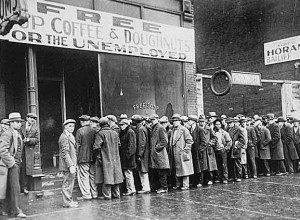**Posted by Phineas

Rick Moran at PJMedia has an article up about an effort on the part of Seattle business owners to get a measure on the ballot that would roll back [1] the city’s recently passed $15 per hour minimum wage to a more “reasonable” $12.50. You can go there to get the details (there are accusations of fraud in the petitions to get the measure on the ballot), but here is a portion in which a Seattle business owner describes the very real impact [2] raising the minimum wage has on his and other businesses:
That favorite coffee shop that you go to? That great neighborhood restaurant? That store where you buy your books, pet food, art supplies, or clothes? Each of those businesses survives on around a 5 percent net profit margin. That means that at the end of the year, after all the expenses—the payroll, the supplies, the inventory, insurance, rent, etc.—we all will end up with only about 5 percent income in our pockets if we’re doing a half-decent job. Maybe a bit more, maybe a bit less—but you get the idea. This does not leave a small local business with much room to absorb even a small increase in costs, much less the 60 percent increase demanded by the well-meaning but ill-researched and biased reporters and neighbors involved in this discussion.
Here are some more boring facts:
Payroll is approximately 30 percent of my entire costs at Liberty, the bar I own (the average in this business seems to be 30 to 35 percent). If the minimum wage goes up to $12.50 an hour (a reasonable middle ground some have proposed), that would be an increase of 34 percent, which means just to stay even I’d have to raise prices 10 percent across the board—the labor’s percentage increase in total cost to operate Liberty.
If the minimum wage goes to $15 an hour, I’d have to raise my contribution to payroll by 18 percent. So my costs would have to rise by no less than 18 percent, just for payroll—and that’s before my vendors’ increases in costs have to be considered, which I believe will be around another 5 percent, and that’s before Liberty adds any profit.
So it’s not impossible to imagine that costs for business like mine in Seattle will go up by no less than 20 percent.
Those increases are way more than my income. Again, my profit is around 5 percent. And it’s not just me, that’s across the board—for restaurants, for bars, for clothing stores, for pet stores, for art supply stores—many of whom have set costs and are competing with online retail. This makes it very difficult for them to adjust their purchasing.
So, what are this business owner’s options? That’s his problem, not the Seattle city council’s.
Thomas Sowell has often observed that politicians almost never feel the economic consequences of the decisions they force on the rest of us. While they’re buying their way to reelection by handing out goodies and making themselves feel good by supposedly “fighting for the people,” someone else has to pay the cost — in this case, the businessman who takes less profit, the worker who gets fewer hours, or the consumer who pays higher prices.
I left a comment [3] to Moran’s post and I want to share part of it here. It’s anecdotal, but I think it illustrates the very real effects of politicians thinking they can ignore the laws of economics:
A friend supervises minimum wage, hourly employees in an educational setting. Our minimum wage [in California] has just gone up to $9 per hour. She has told me that she knows for a fact her budget for hiring will not increase, so she has to cut employee hours and, perhaps, eliminate a couple of jobs. Now, someone explain to me again how this increase actually helped these workers? But it sure made the pols in Sacramento feel good about themselves.
Those employees are student workers, often from minority groups, who work to help pay their way through school. And they are very real victims of progressives’ “good intentions.”
(Crossposted at Public Secrets [4])